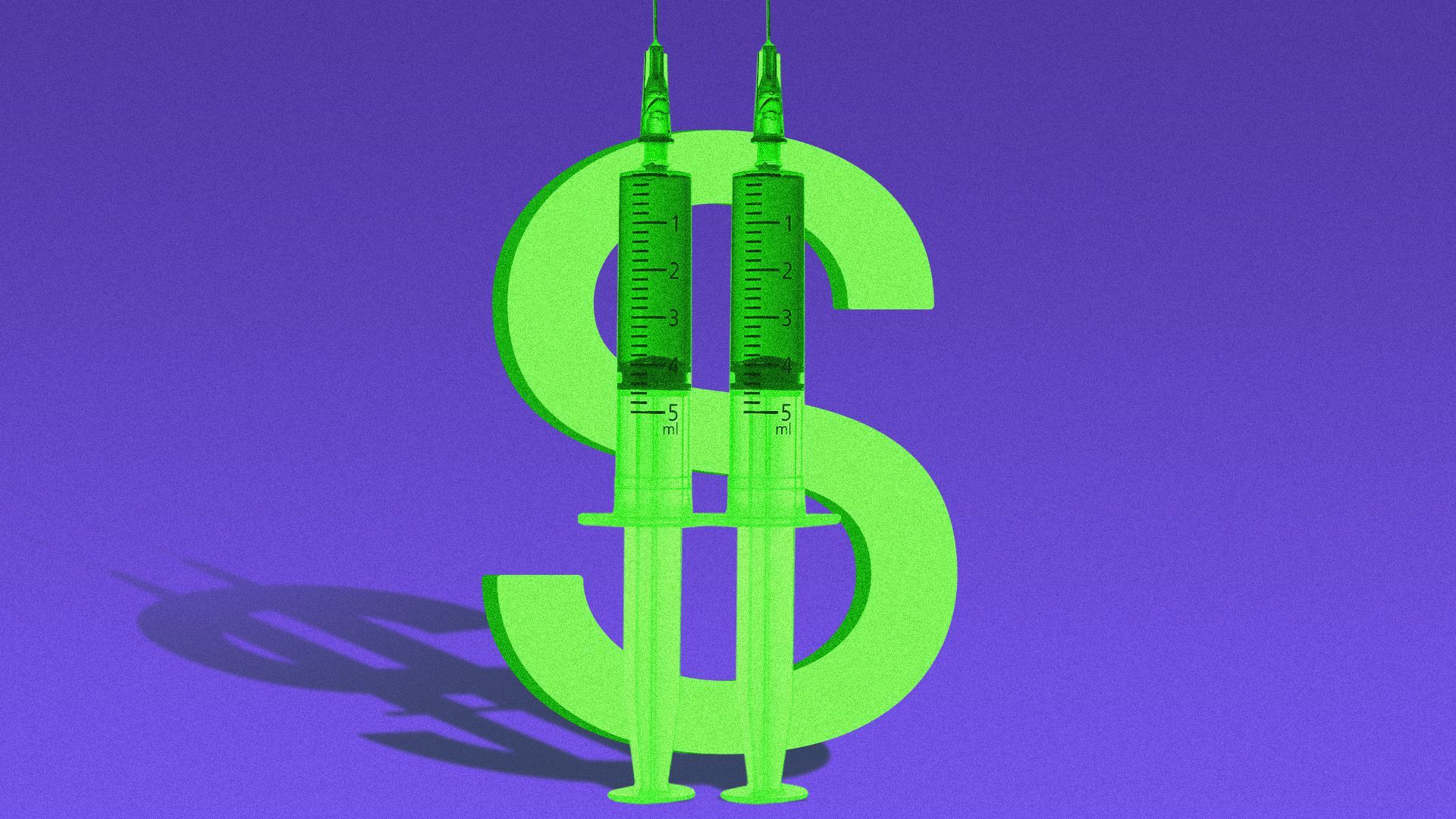Plus, Medicare negotiations' evolving definition | Tuesday, November 02, 2021
| | | | | | | Presented By PhRMA | | | | Axios Vitals | | By Tina Reed ·Nov 02, 2021 | | Good morning, Vitals readers. Today's newsletter is 718 words or a 3-minute read. Situational awareness: Pfizer's Q3 earnings are reported today. Coincidentally, the CDC will also weigh in today on their shots for kids ages 5–11. | | | | | | 1 big thing: The future of hospitals |  | | | Illustration: Annelise Capossela/Axios | | | | Hospitals in the future will look far more tech-enabled and consumer-focused — when patients are actually even getting care in a hospital building itself. Why it matters: Hospitals were already pushing more care outside their four walls before the pandemic. COVID accelerated that shift, forcing hospitals to reimagine what's possible to deliver in patients' homes, experts say. The big picture: One way to picture what hospitals of the future will look like is to look at two brand new hospital buildings opened this fall by different Pennsylvania health systems. - The buildings, by Penn Medicine and Highmark Health, both offer hotel-like amenities such as better food, streaming services and better-positioned outlets for cell phone charging. They've also made medical records more accessible to patients, executives say.
- But they were also designed with the belief that, in the future, only the most complex care might be delivered in them.
"The pandemic was an amplifier for natural trends that were already starting to develop," Highmark CEO David Holmberg told Axios. "The complexity of medical procedures [in hospitals] is going to be significantly higher." The bottom line: Tech advances will change the entire hospital experience no matter where the care is delivered. - Wearables will provide digital biomarkers to allow better patient monitoring from the home. "Smart" infrastructure will help patients find parking and navigate massive hospital campuses when they need to go into the hospital.
- And 5G will allow doctors to pull up massive amounts of personalized data on a wireless screen in seconds, Hon Pak, chief medical officer at Samsung Electronics told Axios.
- "The perspective we want to bring to the smart hospital is it's not just about caring for the condition or the disease, but it's about caring for the whole," Pak said.
Go deeper. |     | | | | | | 2. Democrats may narrow prescription drug reforms |  | | | Illustration: Shoshana Gordon/Axios | | | | Democrats are trying to revive their efforts to lower prescription drug prices through Medicare negotiation, Axios' Caitlin Owens writes. State of play: President Biden's framework for Democrats' reconciliation bill notably excluded any major prescription drug price reforms. - Democrats have since been trying to find a compromise that would still allow Medicare to negotiate drug prices, but within parameters that moderates could support.
What's locked in: Sen. Ron Wyden, D-Ore., told reporters Monday members are "made some real headway over the weekend." - He said Democrats are still considering allowing Medicare to negotiate the prices of drugs in Parts B and D. A bill by moderate House members would have applied negotiations only to Part B.
- Every insulin product covered by Part D would be available at a low cost, and those prices would be negotiated by the government.
- A cap that prevents prices from rising greater than inflation would apply to both Medicare and the commercial market.
- There'd be a cap on what Part D enrollees pay out-of-pocket for drugs, likely $2,000. There'd also be a monthly out-of-pocket cap.
But, but, but: The party is still hashing out which drugs would be eligible for negotiation, Wyden said. - One emerging idea is to only allow Medicare to negotiate the prices of drugs that are no longer protected from competition by the exclusivity period given to them when they first come to market.
- That exclusivity period lasts for five years for small-molecule drugs and 12 years for biologics.
|     | | | | | | 3. Vaccines keep older Americans out of the hospital |  The number of COVID-19 hospitalizations among older Americans dropped significantly since the vaccine rollout at the start of the year, new federal data show. - 97% of people 65 and older have at least one vaccine dose, and more than 85% of that age group is fully vaccinated, according to the CDC.
Yes, but: People who are covered by both Medicare and Medicaid — the poorest demographic, who often are in nursing homes — are 2.5 times more likely to be hospitalized, according to federal data. - Medicare enrollees who have kidney failure and compromised immune systems also are significantly more likely to be hospitalized from COVID-19 than old or disabled Medicare enrollees.
Share this story. |     | | | | | | A message from PhRMA | | The cost of medicine needs to be predictable and affordable | | |  | | | | A majority of patients said they would prioritize lowering out-of-pocket costs over insurance premiums. In fact, 3 in 10 Americans who have insurance still face a financial barrier to care. Fixing health care means putting patients first. Learn more from the Patient Experience Survey. | | | | | | 4. Catch up quick | - The Biden administration will publish details on COVID vaccine mandate for businesses in the coming days. (CNBC)
- A three-decade monopoly: How Amgen built a patent thicket around its top-selling drug. (BioPharma Dive)
- Labs with no one to run them: why public health workers are fleeing the field. (California Healthline)
- Biden promised to fix home care for seniors. Much more help may be needed. (New York Times)
|     | | | | | | A message from PhRMA | | The cost of medicine needs to be predictable and affordable | | |  | | | | A majority of patients said they would prioritize lowering out-of-pocket costs over insurance premiums. In fact, 3 in 10 Americans who have insurance still face a financial barrier to care. Fixing health care means putting patients first. Learn more from the Patient Experience Survey. | | | | 😎 Enjoy this newsletter but not a subscriber yet? Let's fix that. |  | | It'll help you deliver employee communications more effectively. | | | | | | Axios thanks our partners for supporting our newsletters. If you're interested in advertising, learn more here.
Sponsorship has no influence on editorial content. Axios, 3100 Clarendon Blvd, Suite 1300, Arlington VA 22201 | | | You received this email because you signed up for newsletters from Axios.
Change your preferences or unsubscribe here. | | | Was this email forwarded to you?
Sign up now to get Axios in your inbox. | | | | Follow Axios on social media:    | | | | | |








No comments:
Post a Comment